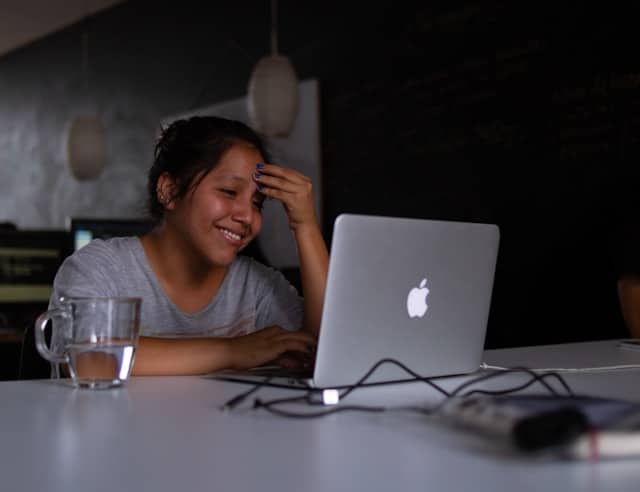In today’s hyper-connected, globalized world, the stiff boundaries of conventional education are rapidly breaking down. Trainees no longer need to choose between intellectual growth and life-enriching experiences abroad. With the expansion of online degree programs, versatile course work, and virtual resources, a new paradigm has actually emerged: the trainee tourist.
These enthusiastic trainees balance term papers with travel schedules, looking for to broaden both their minds and their outlook through simultaneous learning and exploration.From keyboarding in Spanish plazas throughout warm days to carrying out research study on ecotourism island-hopping throughout Southeast Asia, students are mixing knowing and adventure. Yet amazing as this life may sound, it does feature its share of problems. Meeting due dates, staying focused, and producing quality academic work in the middle of the temptations and uncertainty of traveling is not an easy endeavor.Pro Tips for Student Travelers Source So how do trainees remain thinking about finding out while living their imagine visiting the world? Here’s a detailed guide for world-traveling trainees who are prepared to make it happen.The Appeal and Challenge of the Nomadic Student Lifestyle The aspiration of studying on the go is closer than ever, with discovering platforms like Coursera, edX, and even the traditional universities using hybrid and fully online degrees. These permit students to continue studying while venturing out into brand-new cultures, learning brand-new languages, and getting hands-on experience.But roadway liberty frequently competes with course work. Getting a research-based paper written needs structure, focus, and a steady web– three things you can’t count on when working on train schedules in Eastern Europe or dawn travels in New Zealand. Spontaneity and responsibility must coexist, and it starts by developing sound routines and routines.Strategic Preparation is Non-Negotiable Being proactive is maybe the most critical practice for trainee travelers. Start each scholastic semester by producing a timeline of important dates: assignment due dates, examination weeks, group projects, and discussions
. Then overlay your travel calendar on top of this
academic schedule.Use a tool like Google Calendar or Notion to arrange your commitments and responsibilities. Schedule buffer times on travel-heavy days to give way to possible hold-ups or fatigue. Having weekly lists of jobs and prioritized deliverables can assist prevent eleventh-hour scrambles.It is also an excellent idea to plan”deep work” days– consecutive time obstructs devoted to intricate writing or test preparation. If you will be hiking or doing serious sightseeing for a week, attempt front-loading the work or producing extensions beforehand.Develop a Mobile Work space
Source Among the least valued 
 things
things
about productive travel-study living is the flexibility to adjust your work area. Coworking spaces are now sanctuaries for digital wanderers, offering quiet area, dependable Wi-Fi, and a sense of routine. Websites such as Workfrom and Croissant can assist in finding great spaces around the world.Alternatively, determine close-by coffee shops with decent web and low
noise levels. Many tourist location libraries likewise provide short-term connectivity. Carry essential items like a travel battery charger, extension lead, and noise-canceling earphones. A portable laptop computer stand and ergonomic mouse can assist avoid tiredness during long writing sessions.Having a portable work space mindset suggests you’ll be prepared to dive into a composing session whether you’re at an airport lounge or a beachfront hostel.Master Time Management When your environment changes often, adhering to a routine becomes even more crucial.
Adopting a versatile
, yet consistent daily schedule is crucial. Assign time slots for composing, coursework, sightseeing, rest, and social interaction.The Pomodoro Technique– 25 minutes of concentrated concentration and after that taking a break– can be a lifesaver in maintaining attention. There are programs such as Forest or Focus
Booster that send mild tips to remain on track.Remember that time zones can work in your benefit. You may be able to send tasks ahead of schedule if you’re several hours ahead of your school’s timezone. However always verify due dates and let professors know where you are and how to reach you.Know When to Request for Help Unexpected problems become part of travel: lost bags, food poisoning, blown laptop computers. When these meet up with schoolwork, it’s worth it to have contingencies. Don’t think twice to contact teachers for deadline flexibility or aid.In more vital circumstances, expert scholastic support can be a good safety net. When you’re under pressure or struggling to fulfill formatting, writing services concerned the rescue. It’s a pragmatic option for trainees who are saying to themselves,”Someone do my task for me, please,”when life on the highway takes a turn. These services permit you to remain academically real while keeping pace with deadlines.Make Usage of Offline Tools Source Not all travel locations have high-speed internet. When traveling to remote or unattainable areas, plan ahead by downloading reading materials, lecture notes, and related software application prior to departure. Google Docs offline mode, Pocket (for checking out conserved web content), and Evernote can be helpful.Zotero is a fantastic
offline citation manager, and Scrivener provides a terrific platform for writing longer tasks. Don’t discount making use of good old-fashioned note pads, either. Having a physical space to brainstorm or outline can assist put things together in ways that digital tools often can’t. Embrace Cultural Insights in Your Composing Travel can
transform your academic work by supplying it with first-hand perspectives. You are either a sociology trainee investigating street life in Bangkok or a literature student comparing narrative traditions in Latin America, but your essays can get new levels of depth and individuality.Rather than seeing traveling as a diversion, see it as an opportunity to do field research.
Take an observation book, tape record interviews, and document experiences with the regional culture. They can be referenced later as qualitative data or rich anecdotes in your writing.In addition to bettering your scholarship, this will likewise sharpen your important thinking and cultural level of sensitivity– a set of capabilities valued by academic and expert alike.Stay in Touch with Your Scholarly Network Isolation can be a sneaky productivity killer. Stay engaged with your trainee community by checking university websites regularly,
adding to discussion boards, and attending virtual workplace hours.Many trainees utilize messaging platforms like Slack, Discord, or Teams to remain in touch with fellow students, exchange resources, or coordinate group work. Producing these virtual neighborhoods can make the experience less separating
and more collaborative.Having an accountability partner or pal is also motivating. Set up weekly check-ins to catch up on objectives, obstacles, and achievements– no matter how little they may be.Health and Well-Being First The excitement of continuous action can mask the toll it handles your mind and body.
Exhaustion, dehydration, and bad nutrition can take a substantial toll on focus and memory– both essential for scholastic performance.Make day-to-day self-care routines part of your regimen: short workouts, healthy food, water, and sleep. Carrying a little fitness package(resistance tubes, yoga mat)or utilizing apps like 7 Minute Exercise can keep you active.Also important is mental wellness. Journaling, meditation, or even simply avoiding screens can charge focus. Travel-friendly mindfulness resources are
available through apps like Headspace, Calm, or Insight Timer.Get influenced: Real-Life Stories: Learning on the Go Think about Chloe, a Toronto-based graduate student studying global relations. Her Southeast Asian semester had her navigating disorderly Bangkok markets, serene Laotian riverbanks, and Vietnamese coffee shops– all while making a 3.9 GPA. She associates her success to early morning composing sessions, thorough Trello usage, and the strategic usage of scholastic support under duress.And then
there is David from Manchester, a trainee of ecological science. His thesis on sustainable agriculture was reworded after field interviews with farmers in Vietnam and Bolivia. His experiential learning not only enriched his thesis but even earned him a research grant upon his return.Even more motivating is Leila, a Moroccan company student, who integrated part-time coursework with a volunteer experience in rural Kenya. By integrating her fieldwork into her marketing case
studies, she produced exceptional jobs that amazed her teachers and resulted in deals of internships.Final Ideas Looking for college does not necessarily entail putting your travel aspirations on hold. On the contrary, with thoughtful factor to consider, studying abroad can boost both. The journeys end up being a class, and the class extends beyond its confines to each street, museum, mountain, and exchange of conversation overseas.With proper equipment, planning, and proactive state of mind, trainee travelers can stand out academically along with gain irreplaceable life experiences. With versatility, health focus, and understanding when to seek help,
students can redefine
the global learner.So pack your books and your passport too. The world awaits, and it has lots of lessons beyond the curriculum.
